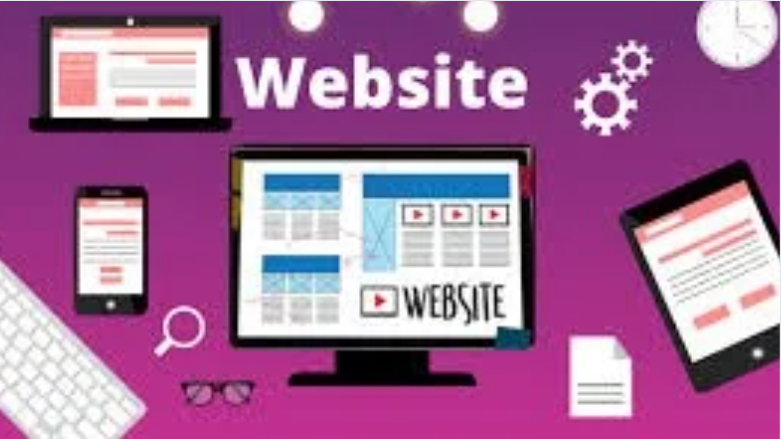Finding the Perfect Website Designer Near Me: A Comprehensive Guide
Your Website Designer Near Me often serves as the first impression potential clients or customers will have of you, making its design crucial. This guide will help you navigate the process of finding the perfect website designer in your area.
Why Choose a Local Website Designer?
-
Personalized Service
One of the biggest advantages of hiring a local website designer is the potential for personalized service. Unlike large, impersonal design agencies, a local designer is more likely to offer a customized approach, taking the time to understand your unique needs and preferences. They can meet with you in person, allowing for better communication and a more nuanced understanding of your vision.
-
Faster Response Times
When working with a local designer, you can expect quicker responses and more immediate support. Time zones and geographical distances won’t be barriers, which can be crucial if you have urgent updates or need to address issues promptly.
-
Support Local Businesses
Choosing a local website designer also means supporting small businesses and entrepreneurs in your community. This not only helps stimulate the local economy but also fosters a sense of community and collaboration.
-
Familiarity with Local Market Trends
Local designers often have a better understanding of regional market trends and consumer behaviors. This insight can be invaluable in tailoring your website to appeal to local audiences and incorporate relevant cultural or regional elements.
How to Find a Local Website Designer
-
Online Search
Begin your search by using search engines to find website designers in your area. Use terms like “website designer near me” or “web design services in [your city].” This will yield a list of local designers and agencies that you can further research.
-
Social Media and Networking
Social media platforms and networking events can also be excellent resources for finding local talent. Look for recommendations on platforms like LinkedIn, Facebook, and Twitter, and join local business groups where you can ask for referrals.
-
Local Business Directories
Check local business directories such as Yelp, Yellow Pages, or industry-specific directories. These platforms often include reviews and ratings that can help you gauge the reputation and quality of potential designers.
-
Referrals and Word of Mouth
Ask friends, family, or business associates for recommendations. Personal referrals can be a great way to find reliable designers who have already been vetted by someone you trust.
Evaluating Potential Designers
Once you have a list of potential website designers, it’s important to evaluate them to ensure they’re a good fit for your project. Here’s how:
-
Review Portfolios
A designer’s portfolio provides insight into their style, capabilities, and previous work. Pay attention to the design quality, usability, and the diversity of their work.
-
Check References and Reviews
Reach out to previous clients to get feedback on their experience. Ask about the designer’s reliability, communication skills, and ability to meet deadlines.
-
Assess Communication Skills
Evaluate how well the designer listens to your ideas, provides feedback, and keeps you informed throughout the process. Clear and consistent communication can prevent misunderstandings and ensure your vision is realized.
-
Discuss Technical Skills
Ensure the designer has the technical expertise required for your project. This includes proficiency in web design tools and technologies, knowledge of SEO best practices, and the ability to create responsive designs that work on various devices and screen sizes.
-
Evaluate Project Management
Ask about the designer’s project management approach. Will they provide a timeline and milestones? How will they handle revisions and feedback? A well-organized designer will have a structured process that helps ensure the project stays on track.
Key Considerations for Your Website Design Project
-
Define Your Goals
Before starting your search, clearly define your goals for the website. Are you creating an e-commerce site, a portfolio, or a blog? Understanding your objectives will help you find a designer with the right expertise and style.
-
Set a Budget
Determine your budget for the project. Website design costs can vary widely depending on complexity, features, and the designer’s experience.
-
Discuss Timelines
Establish a timeline for your project. How quickly do you need the website completed? Be realistic about your deadlines and ensure the designer can accommodate them without compromising quality.
The Design Process
Understanding the typical design process can help you manage expectations and ensure a smooth collaboration with your chosen designer. Here’s a general overview:
-
Discovery Phase
This initial phase involves discussing your goals, target audience, and design preferences with the designer. They may also conduct research and gather information to better understand your needs.
-
Design and Development
Based on the discovery phase, the designer will create wireframes or mockups of the website. This is followed by the development phase, where the actual website is built and tested. During this phase, you’ll review the progress and provide feedback.
-
Testing and Launch
Before going live, the website undergoes thorough testing to ensure everything functions correctly. This includes checking for broken links, compatibility with different browsers, and mobile responsiveness. Once everything is in order, the website is launched.
-
Post-Launch Support
After launch, ongoing support and maintenance are crucial. Discuss with your designer about post-launch services, including updates, security monitoring, and troubleshooting.
Also Read : Liverpool Website Design
Conclusion
Finding the right website designer near you can significantly impact the success of your online presence. By choosing a local professional, you benefit from personalized service, quicker communication, and a better understanding of local market trends. Take the time to research, evaluate, and communicate your needs clearly to ensure a successful collaboration. With the right designer by your side, you’ll be well on your way to creating a website that not only meets your expectations but also helps you achieve your business or personal goals.




